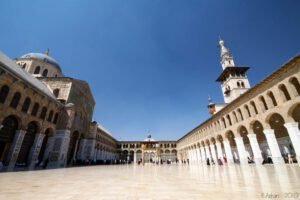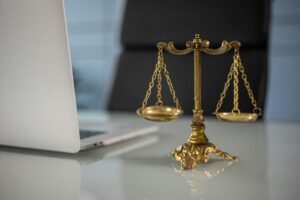Executive Summary
Syria faces a core problem: extreme division. This division stops any real talks or understanding. People are forced to pick sides, simplifying a complex situation into limited choices. You are either with the government or against it, with Assad or ISIS, a loyalist or a traitor, opposition or ‘shabeeh’, a believer or an infidel. These simple choices ignore any chance for agreement or compromise. This pattern is not new to Syria. Other conflicts have shown similar divisions, like the civil war in Rwanda, fueled by hate and ethnic divides, or the Cold War, which split the world into two opposing sides, limiting options for countries and people.
The Deep Roots of Division
This widespread division is not temporary. It is a deeply set reality that prevents any true dialogue or understanding. It creates an environment where complex ideas and agreement are shut out. People feel pressured to fit into pre-set groups. As a result, it becomes harder to grasp more exact and detailed views. This makes it difficult to share ideas in a useful and logical way.
The idea that someone could support the government in some areas, like bringing stability or providing basic services, while also criticizing it on other issues, such as human rights violations (documented by groups like Human Rights Watch and Amnesty International) or widespread corruption (shown in watchdog reports), seems completely missing in this divided landscape. Important studies in political sociology, like those by Manuel Castells on network societies and division, show that extreme division harms social trust and breaks down the social fabric. This makes recovery and rebuilding after conflicts much harder.
A Path Towards Nuance
Despite this difficult situation, there is still hope. This hope comes from realizing that taking more balanced positions is not just possible, but vital for any real progress. It makes sense to support government actions that serve the nation and its people. Examples include efforts to fight terrorism and extremist groups that have threatened regional and global stability, or rebuilding damaged infrastructure in some areas.
At the same time, it is a right, and indeed a national duty, to criticize government mistakes, failures, and any actions that harm the public. This includes security abuses documented in UN reports, or ignoring issues of justice and accountability for harm against civilians. Holding the government accountable is not betrayal. It is a key part of responsible citizenship and a true desire for national reform and development. Other countries that have gone through democratic changes or inspiring national healing processes, like South Africa with its Truth and Reconciliation Commission, have shown this. They proved that admitting flaws and being open to constructive criticism are important signs of political and social maturity.
True Patriotism and a Healthy Society
True patriotism does not mean blind loyalty. Instead, it is a deep commitment to the well-being of the nation and its people. This includes our right and duty to voice concerns and demand good governance. Criticizing the government is not necessarily an act of treason. Constructive criticism, which aims for improvement, is a real act of patriotism. It shows a genuine interest in the country’s future and success. Furthermore, important research in political psychology, from leading experts in social identity theory and group psychology, suggests that the ability to think critically and express opinions freely shows a healthy society. Such a society can grow and adapt to challenges. Suppressing these abilities inevitably leads to stagnation and extremism.
Conclusion
Only by moving past this narrow mindset and embracing diversity can Syria recover and build a strong future for everyone. This needs a culture of constructive dialogue and accepting differences. We must recognize that different opinions are a strength, not a weakness. Building a better future for Syria requires the combined efforts of all its people, no matter their background or political views, as long as they work for the nation’s best interest. We can learn from other countries that successfully overcame division and built more inclusive and fair societies. They did this by focusing on good civic education, strengthening independent and responsible media, and supporting effective civil society groups that build strong connections between different parts of society.




